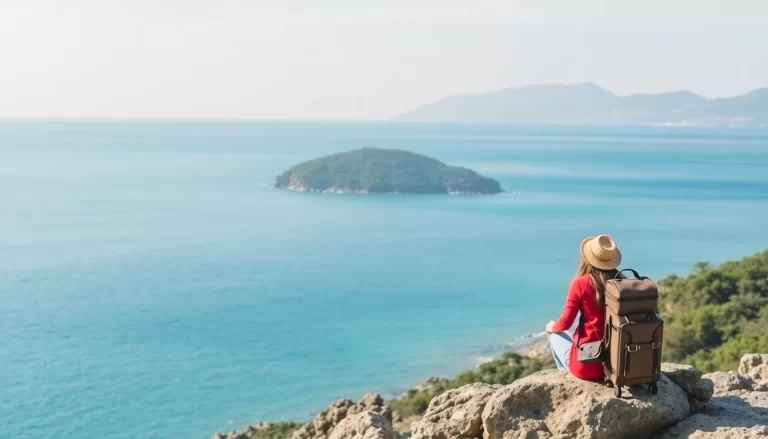Australia is a dream destination for many travelers, renowned for its stunning landscapes, vibrant cities, and unique wildlife. However, the excitement can quickly turn into a financial headache if you’re not prepared. Understanding the potential costs of visiting Australia is crucial for creating a realistic budget that allows you to enjoy all that this beautiful country has to offer.
If you’re considering a trip down under, you might be wondering: How much does a trip to Australia really cost? The answer varies significantly depending on your travel style, preferences, and the duration of your stay. Let’s break down the costs to help you navigate your adventure without breaking the bank.
Overview of Trip Costs to Australia
When planning a trip to Australia, it’s essential to consider various factors that contribute to the overall cost. From flights and accommodations to food and activities, here’s a detailed look at what you can expect to spend.
Flight Costs to Australia
The cost of your flight to Australia will depend on your departure location. Here’s a quick guide to average flight prices:
- From India: Approximately $600 – $1,200 USD.
- From the UK: Around $800 – $1,500 USD.
- From the USA: Roughly $900 – $1,800 USD.
- From Canada: About $700 – $1,500 USD.
Keep in mind that prices can fluctuate based on the season, day of the week, and how far in advance you book.
Typical Daily Expenses in Australia
Once you’ve secured your flight, you’ll need to consider daily expenses. Here’s a breakdown of average costs you might encounter during your stay:
- Hostel Accommodation: Generally ranges from 25-30 AUD in regional areas to 30-55 AUD in major cities like Sydney and Melbourne.
- Budget Hotels: Start from 150 AUD per night for basic two-star accommodations.
- Food: Expect to spend about 15-25 AUD for a cheap meal. Fine dining can set you back around 60-80 AUD.
- Transportation: Using public transport can cost anywhere from 3-10 AUD per trip, while long-distance bus passes can range from 309 AUD to 449 AUD.
- Activities: Entry to attractions like national parks typically costs 8-12 AUD, while day tours can vary from 150-300 AUD.
How Long Will You Stay?
Your trip duration significantly influences your budget. Here’s a breakdown of what to expect for different trip lengths:
- 1 Week: Budget around 1,200 – 1,500 AUD.
- 2 Weeks: Expect to spend around 2,000 – 3,000 AUD.
- 1 Month: Approximately 5,000 – 6,000 AUD for a comfortable experience.
Traveling on a Budget
Traveling in Australia doesn’t have to be prohibitively expensive. Here are some strategies to save money while enjoying your trip:
- Cook Your Own Meals: Many hostels have kitchen facilities. Preparing your meals can save you a significant amount.
- Use Public Transport: Instead of taxis or rideshares, opt for public transportation, which is more economical.
- Couchsurfing: Consider staying with locals through platforms like Couchsurfing to save on accommodation costs.
- Take Advantage of Discounts: Look for combo tickets for attractions or book tours as packages to enjoy savings.
- Free Activities: Explore public parks, beaches, and free walking tours to experience Australian culture without spending a dime.
Understanding Regional Variations in Costs
Different regions in Australia can vary greatly in terms of expense. For instance:
- Major Cities: Sydney and Melbourne are typically more expensive than cities like Adelaide or Hobart.
- Rural Areas: Costs can be lower, but you may need to travel further for activities and amenities.
Understanding these regional differences can help you plan your itinerary and budget more effectively.
Final Thoughts on Planning Your Trip
While Australia is known for its breathtaking sights and experiences, it’s also crucial to budget wisely to enjoy your visit without financial stress. Keep in mind the following:
- Always have a buffer in your budget for unexpected expenses.
- Research and plan your trip according to your interests to maximize your experience.
- Stay flexible with your plans to take advantage of last-minute deals or opportunities.
With proper planning and budgeting, your trip to Australia can be both memorable and manageable financially.







